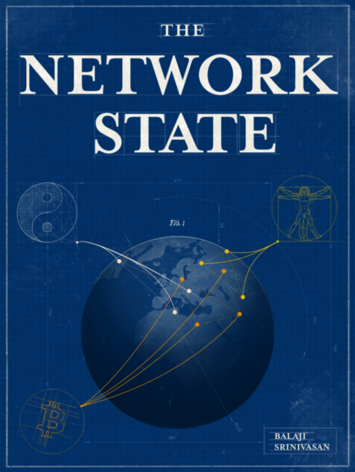Established societies will slow down over time, and the ruling elites will try to prevent progress to happen for staying in power and enjoying the privileges.
Progress requires facing the unknown and uncontrollable, and holding back the urges to hinder this process. Most of the innovation and human progress has happened with new frontiers and by failures to curtail the progress (see Open: The Story of Human Progress for more).
Our societies are good at adding new legislation, taxes and administrative burdens to citizens. We don’t have good methods for garbage collection to expire, delete and remove previous layers. The default destruction will happen first slowly and then suddenly if we do nothing (e.g. the rise of locality). Fiat currencies are just one example where inflation is a very visible manifestation of this downward death spiral now.
In the past, renewal happened mainly by physically locating to or discovering new areas. While we are waiting for the space age to reach out to the masses we have another new territory open for us: the digital one.
Commercial successes with the Internet domain space are evident. Web3 allows this development to reach another culmination point where the previous Leviathans, god and state, are yielding to the new one: Network.
The previous ones relied on physical coercion as their ultimate leverage. The new one gains its power from cryptography, transparency and decentralisation: you cannot fiat your way to unlock private keys no matter how mighty your army is. Individuals have the leverage over the top-down hierarchies.
Even in Matrix, the physical reality mattered. Who controls the atom space can reshape the rest. Yet, we are shifting from the atoms-first to the digital-first society: when the Internet is down, not much is working in the physical world either.
The challenge is how to reboot a society without violence? The conventional means (election, revolution, war, micronations, seasteading, space) have not resulted in a drastic increase of new states over the last hundred years without resorting to violence or a zero-sum power shift without fundamental civil rebooting. There are exceptions such as the Eastern European countries that had the opportunity to reboot their societies after the collapse of the Soviet Union (e.g. Estonia).
Elections, revolutions and democracy are not voluntary processes: the majority rules over the rest. The Network State sets the bar higher: how to create new states that are 100 % voluntarily built without physical violence?
Start from the digital-first, and the land is the last stage. This reverses the conventional approach where the land is the primary goal first, and then trying to build the momentum and recognition by other states happens later.
How do you gain leverage with the digital-first approach? The most condensed definition so far is this:
A network state is a highly aligned online community with a capacity for collective action that crowdfunds territory around the world and eventually gains diplomatic recognition from pre-existing states.
Prepare for the future where nation-states (or what’s left of them) are mere utility providers for the basics like electricity, water and heating are for us now, or you read about them only in the history books as an experimental (violent) phase in the human history.
But first, read the book and build some network states.

